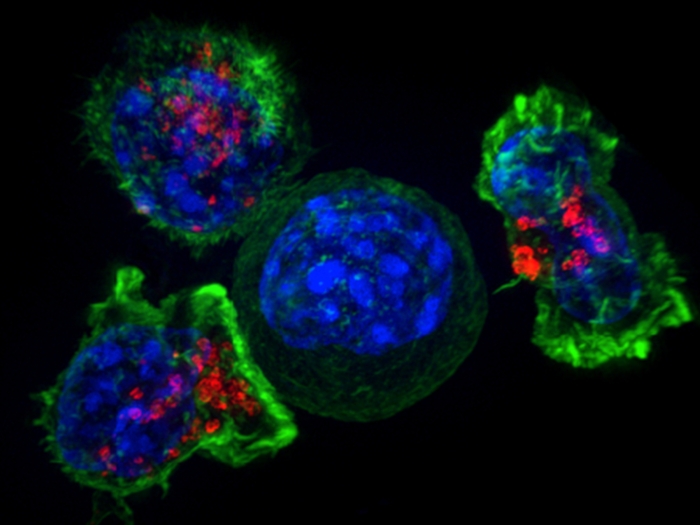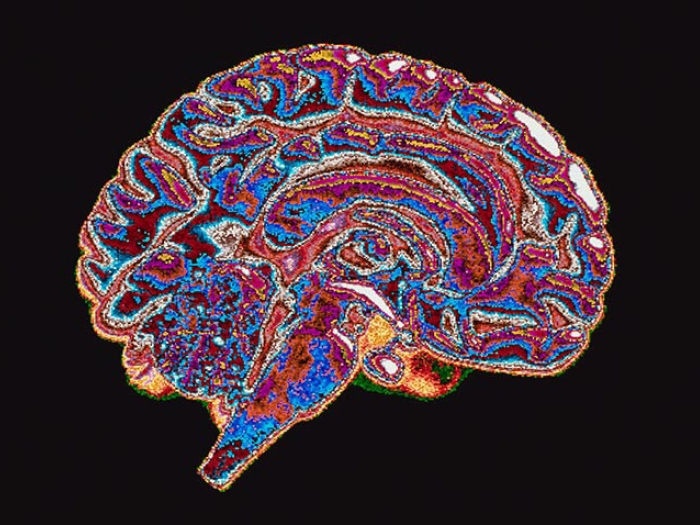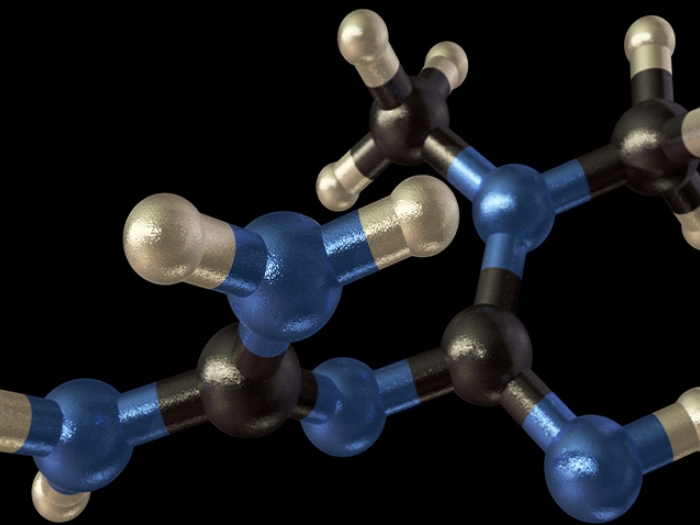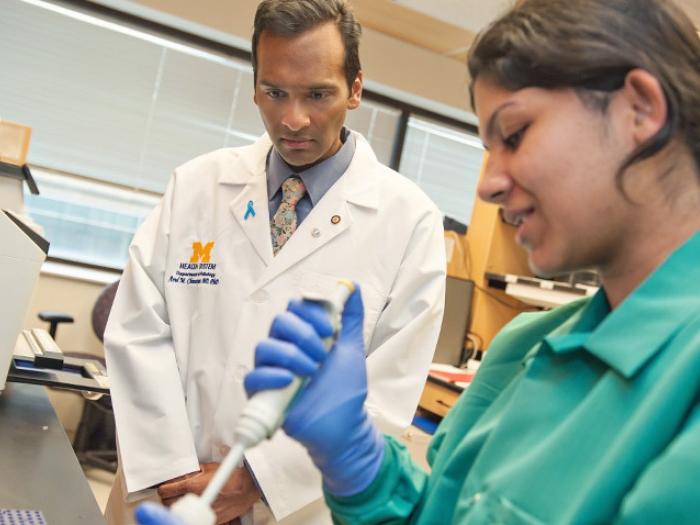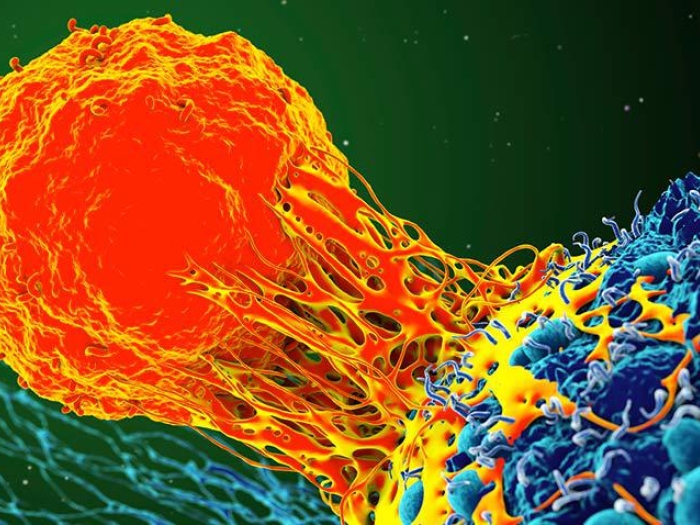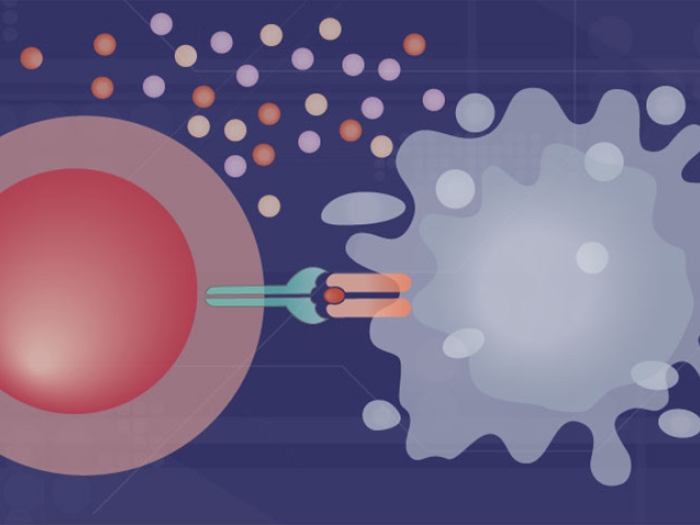PD-L1 in cells within the tumor microenvironment and lymph nodes may matter more than PD-L1 in tumors, researchers report in a new study.
4:00 PM
Author |
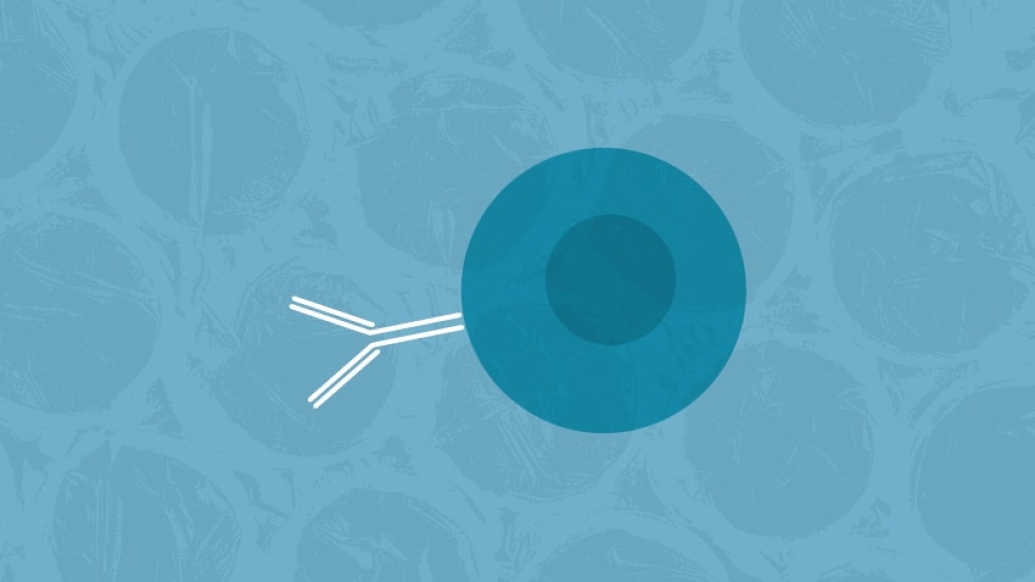
While immunotherapy has made a big impact on cancer treatment, the fact remains that only about a quarter of patients respond to these treatments.
MORE FROM THE LAB: Subscribe to our weekly newsletter
"This begs the question: Why does it work in those patients? We don't understand the mechanism at work very well," says Weiping Zou, M.D., Ph.D., the Charles B. de Nancrede Professor of Surgery, Immunology and Biology at the University of Michigan.
Zou and colleagues offer a clue in a new study published in the Journal of Clinical Investigation.
Researchers studied mice with colon cancer, ovarian cancer, melanoma and lung cancer to understand how expression of the protein PD-L1 affects response to its blockade. This is a key target of immunotherapy drugs.
The researchers found a key link in the antigen-presenting cells — macrophages and dendritic cells found in the tumor microenvironment and the nearby lymph nodes.
"The antigen-presenting cells are the real guide. PD-L1 expression in these cells is responsible for response to therapy. This reshapes our understanding of checkpoint blockade therapies and the biomarkers that may predict clinical efficacy," Zou says.
SEE ALSO: Scientists Discover Immune Cell Activity that May Limit Immunotherapy
Interestingly, his team first pinpointed the human cancer associated antigen-presenting cells in 2003, in a paper in Nature Medicine. That paper demonstrated that dendritic cells express PD-L1 and that blockade of PD-L1 on antigen-presenting cells causes tumor regression in model systems. But this was when immunotherapy research was in its early stages, before today's therapies were introduced.
When the Food and Drug Administration approved immunotherapy drugs designed to block PD-L1 and PD-1, the indication said patients' tumors must express PD-L1. But these therapies have worked in patients whose tumor cells did not express PD-L1. And they have failed in patients whose tumor cells do.
"Clearly, that's not a reliable biomarker," Zou says.
In the new study, researchers examined tissue samples from melanoma and ovarian cancer patients treated with immunotherapies. In both cancers, researchers found a link between the percentage of antigen-presenting cells expressing PD-L1 and an objective clinical response to treatment.
Currently, tumor tissue is tested broadly for PD-L1 expression. Without looking at individual cells within the tissue, it could mask the true source of PD-L1 expression. This study suggests that a more complicated analysis looking for additional markers might be more informative in guiding treatment.
Disclosure: Study authors Zou and Max Wicha, M.D., received sponsored research grants from MedImmune, and Leslie Fecher, M.D., received clinical trial funding from Bristol-Myers Squibb

Explore a variety of healthcare news & stories by visiting the Health Lab home page for more articles.

Department of Communication at Michigan Medicine
Want top health & research news weekly? Sign up for Health Lab’s newsletters today!
